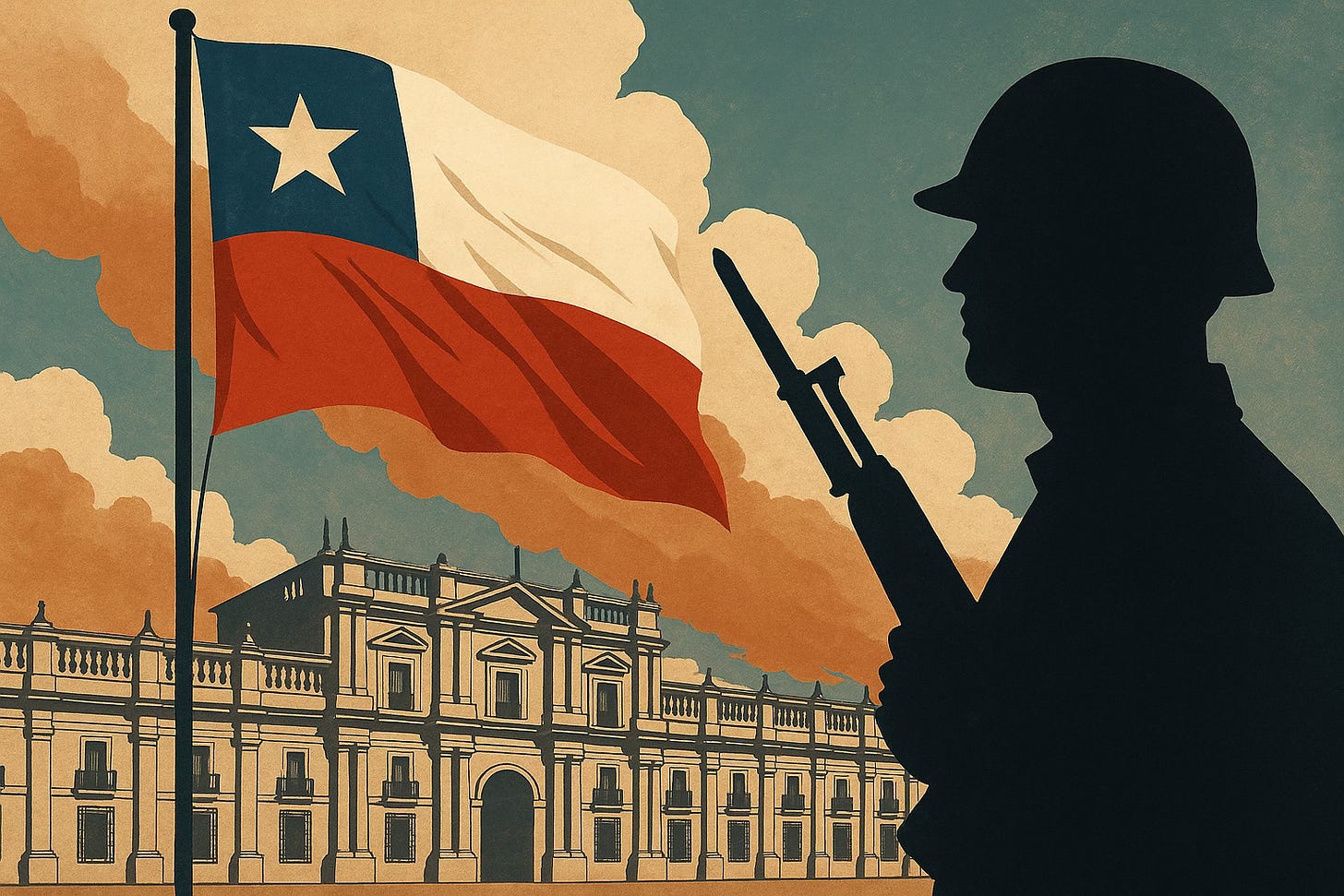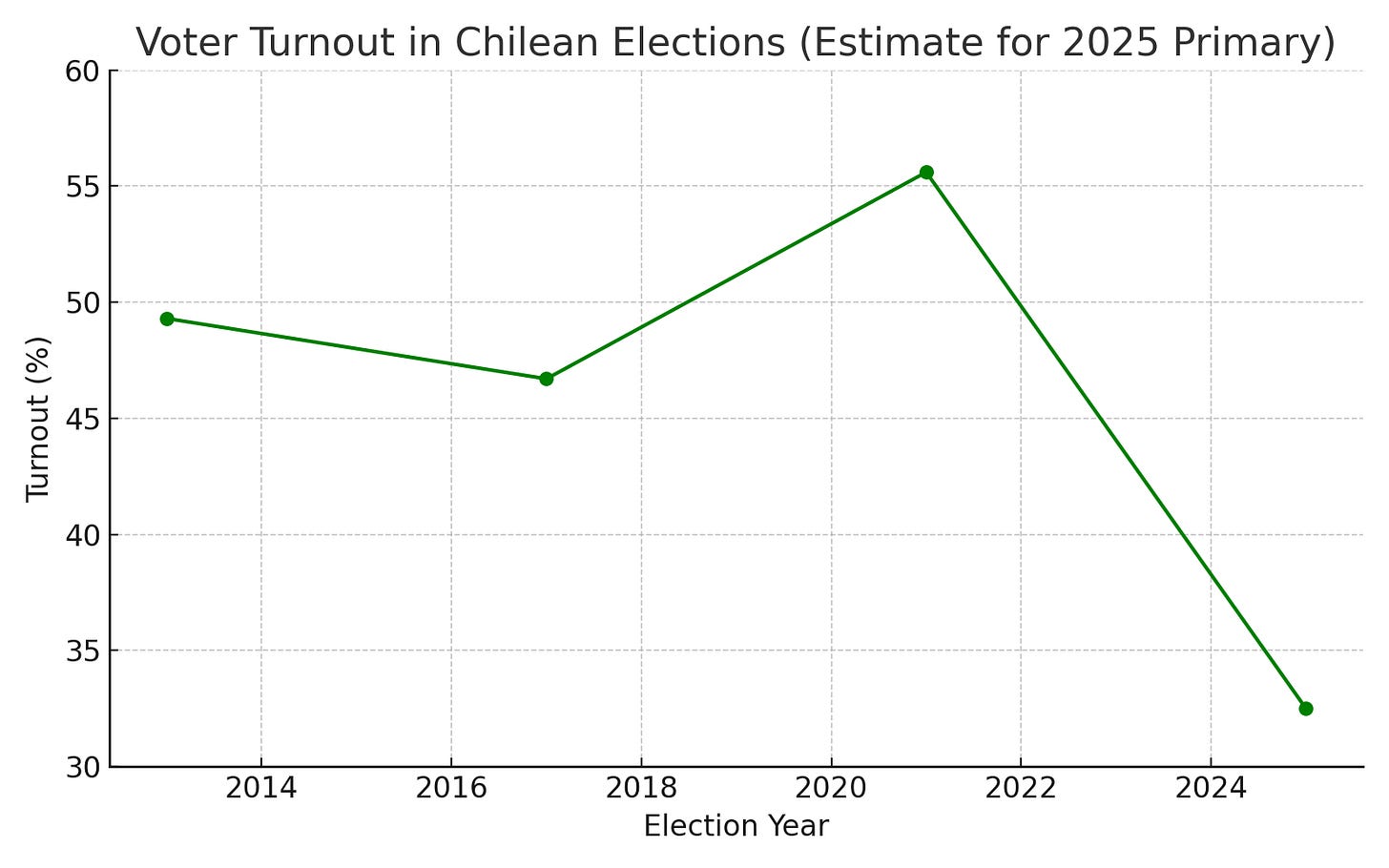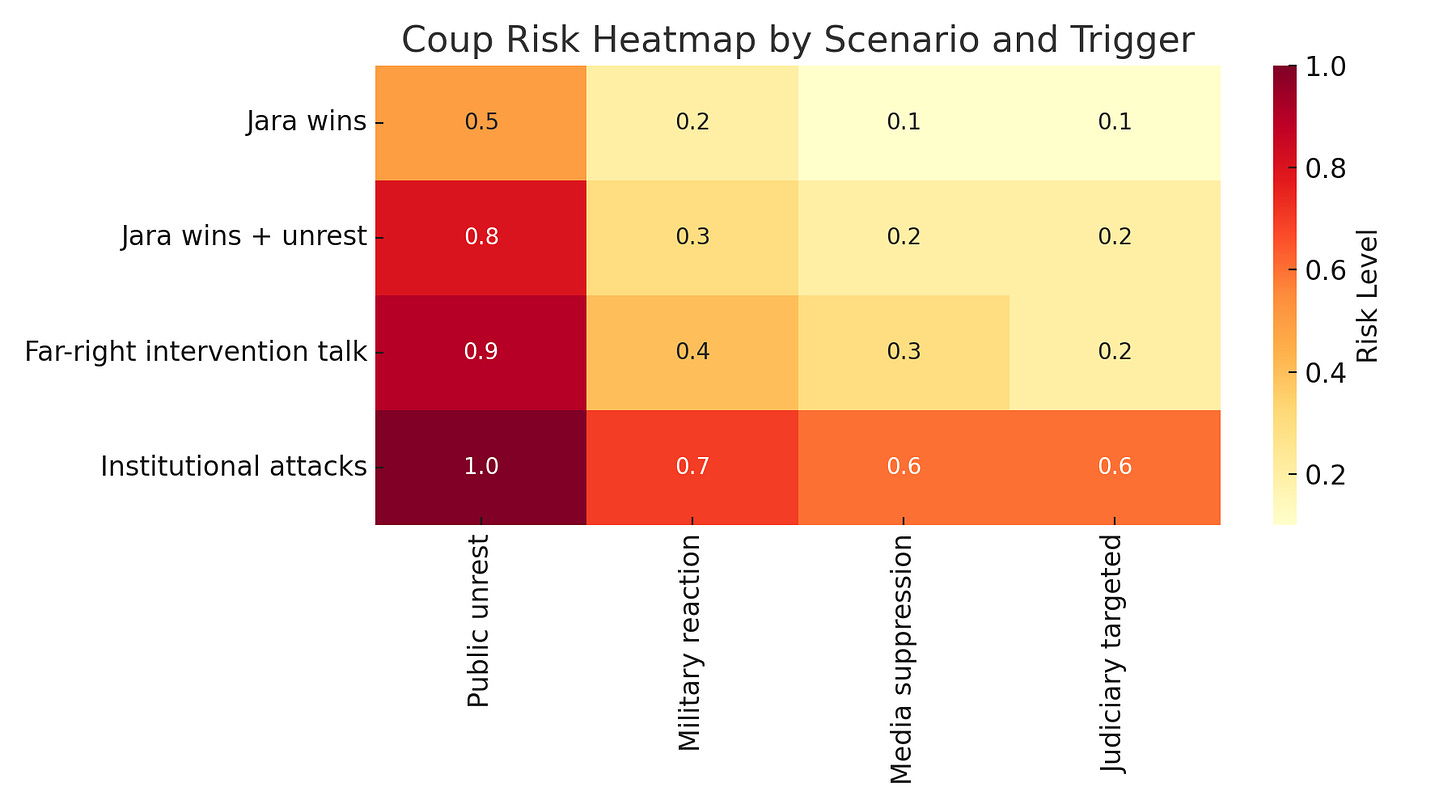Could Chile Face a Coup in 2025?
Could Chile Face a Coup in 2025? Analyzing Risks Amid a Communist Presidential Bid
As Chile heads toward a pivotal election in November 2025, political tension is mounting. For the first time in decades, the Communist Party, represented by Jeannette Jara, has emerged as a serious contender for the presidency. Her recent win in the Unidad para Chile primary has sparked hope on the left—and fear on the right.
But beyond partisan divides lies a deeper concern: could a Jara victory revive the specter of military intervention in a country still haunted by the 1973 coup against Salvador Allende? This blog explores the historical context, current political dynamics, and comparative risks of democratic erosion in modern Chile.
1. Historical Memory: The Shadow of 1973
Chile's political trauma from the 1973 military coup remains deeply embedded in its national psyche. When the military overthrew democratically elected socialist President Salvador Allende, the country entered a 17-year dictatorship under General Augusto Pinochet.
The coup was justified under the Schneider Doctrine, which paradoxically argued for military neutrality unless 'national security' was threatened. Today, Chile’s military is constitutionally apolitical, and civil-military relations are highly regulated.
However, far-right figures like Johannes Kaiser have recently questioned this balance, openly stating he would support a coup if communists return to power.
2. Jeannette Jara: A Communist with Moderate Rhetoric
Jeannette Jara, a former labor minister, won the Unidad para Chile primary with 60% of the vote. She advocates:
- A 40-hour work week
- Strengthening labor protections
- Gradual pension reform
Notably, she distances herself from authoritarian regimes: calling Maduro's Venezuela 'authoritarian' and defending Cuba as a different model.
Her platform is socially progressive but lacks the radical revolutionary tone that might justify extreme responses from conservatives. Still, her Communist Party label is enough to trigger fears in Chile’s right-wing electorate.
3. Data Trend: Primary Results & Polling
According to recent polling data:
- José Antonio Kast (far-right): ~24%
- Evelyn Matthei (center-right): ~10%
- Jeannette Jara (Communist, left): ~8–12%
Voter turnout in the primaries was low (approx. 1.4M of 15.4M eligible voters), but momentum among far-right voters is strong. The electoral trend suggests a runoff between Kast and either Jara or Matthei is likely.
4. Coup Risk Scenarios
Chile faces different levels of political risk depending on how the election and its aftermath unfold:
5. Comparative Analysis: Is Chile at Risk of Democratic Backsliding?
We compare Chile with three nations that faced democratic strain after polarizing elections:
Brazil (2022): Lula vs. Bolsonaro polarization – Protests; no coup
USA (2020): Trump denies election result – Capitol riot; institutions held
Peru (2023): President impeached – Temporary unrest; no coup
Chile (2025): Communist win? – Institutions resilient so far
6. Political Safeguards in Place
- Military Loyalty to Constitution: Chilean forces have adhered to post-Pinochet rules of neutrality.
- International Oversight: The OAS, EU, and U.S. closely monitor Latin American elections.
- Civil Society Strength: Chile’s unions, universities, and press are vocal and active in civic engagement.
7. Final Outlook: Real Risk or Political Theater?
Jeannette Jara’s win is symbolically historic but realistically moderate. Despite anti-communist fear-mongering by some right-wing figures, Chile’s democratic institutions appear durable.
Still, the risk of unrest or institutional erosion cannot be dismissed. The rise in far-right coup rhetoric must be monitored. Much will depend on the behavior of political leaders in both camps post-election.
The takeaway? Chile is not on the verge of a coup—but neither can it afford to ignore the signs of polarization, misinformation, and political extremism. The coming months will test the strength of its democracy.
By Rafael Benavente




